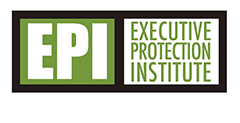Aspiring to be an Executive Protection Agent (EPA) demands much more than tactical prowess and combat skills. In a sea of online courses promising thrilling experiences and ghillie-clad instructors, it’s essential to recognize the true essence of executive protection training. A successful EPA must possess various soft skills that enable them to read people, adapt swiftly, and maintain their clients’ safety in diverse scenarios. While hard skills have their place, the real differentiators are emotional intelligence, problem-solving, and effective communication.
This article digs into the significance of soft skills for EPAs, emphasizing how they pave the way to a rewarding and prosperous career. We’ll explore the traits of a good EPA, the role of online training in honing soft skills, the essential soft skills for executive protection, and how to find a reputable executive protection school.
The Traits of a Good EPA
A successful EPA possesses many soft skills, starting with a quick wit. Often facing unfamiliar environments and working with diverse clients, EPAs must make swift decisions with confidence and ingenuity. Adaptability is equally crucial, as each assignment presents unique challenges that demand innovative solutions. Maintaining composure and discretion in high-pressure situations is paramount to earning trust and ensuring a seamless client experience. Strong written and verbal communication skills are indispensable for building rapport with clients and fostering effective teamwork among protection agents.
Getting EP Training Online in Soft Skills
The essence of executive protection lies in soft skills, which are more challenging to develop than hard skills. Emotional intelligence, problem-solving, and communication abilities cannot be attained through traditional weapons training. Employers recognize the importance of soft skills in executive protection and rely on personality tests to gauge candidates’ competence. Fortunately, executive protection training programs are now available online that focus on developing these essential soft skills. Aspiring EPAs can enhance their emotional intelligence, problem-solving acumen, and communication finesse by investing in such training, setting themselves apart in the industry.
The advent of executive protection training online has revolutionized the accessibility and convenience of acquiring essential skills for aspiring EPAs and industry professionals alike. Online courses offer the flexibility to study from anywhere in the world and at the learner’s preferred pace, making it ideal for those with busy schedules or geographical constraints. Additionally, these courses often provide interactive learning experiences, allowing participants to engage with industry experts, participate in simulations, and receive personalized feedback. However, while online training is a valuable supplement to skill development, it should be complemented by practical, hands-on experiences to ensure the mastery of hard and soft skills.
Soft Skills that Every Agent Needs
Soft skills become increasingly vital for executive protection professionals as the industry evolves. Effective communication is fundamental, as EPAs must establish and maintain trust with their clients while managing their expectations. Interpersonal skills are equally crucial, fostering effective relationships with principals and ensuring their safety and security. Adaptability is necessary in the unpredictable executive protection field, as EPAs must swiftly adjust to ever-changing circumstances.
Identifying and mitigating potential risks demand critical thinking and creativity, often more than brute force. Problem-solving skills emerge in such situations, making creative thinking indispensable. Furthermore, EPAs must be well-versed in customer service to provide clients with a seamless and satisfying experience.
Finding a Good Executive Protection School
The executive protection industry is experiencing unprecedented growth, leading to an influx of EP training programs. However, not all schools are created equal, and finding a reputable institution is essential. Online courses have benefits but should not be relied upon as the sole means of becoming a certified executive protection agent. Employers may have reservations about hiring agents with limited practical experience from uncertified or unknown schools.
Aspiring EPAs must conduct thorough research to find a reliable executive protection school. Evaluating the institution’s history, reputation, and instructors’ backgrounds is crucial. The course content must be up-to-date and comprehensive, covering hard and soft skills. EPAs should attend courses taught by recognized experts and leaders in the executive protection industry, ensuring the highest quality of training.
Conclusion
In conclusion, aspiring EPAs must recognize the immense value of soft skills in the executive protection industry. While hard skills have their place, they constitute only a fraction of an EPA’s responsibilities. Soft skills such as adaptability, communication, problem-solving, creativity, and quick thinking are the true differentiators that propel EPAs to success. Fortunately, executive protection training focusing on these soft skills is now readily accessible online. Aspiring EPAs can pave the way for a fulfilling and prosperous career in the industry by investing in such training.
Soft skills are the key to success in the ever-evolving executive protection field. EPAs must prioritize emotional intelligence, problem-solving, and communication abilities, as they are the true differentiators in the industry. Aspiring EPAs can hone their soft skills by investing in reputable executive protection training and embarking on a rewarding and impactful career.
Investing in comprehensive training emphasizing soft skills’ power is not merely an option but a necessity. As the demand for qualified protection agents grows, employers increasingly prioritize candidates with the emotional intelligence, adaptability, and problem-solving finesse necessary for navigating complex and unpredictable scenarios. Aspiring EPAs can position themselves as indispensable assets in the industry by enrolling in reputable executive protection training programs that focus on developing these vital soft skills. Armed with a robust combination of hard and soft skills, they will be well-prepared to excel in their roles, ensuring the safety and security of their clients with unwavering expertise and professionalism.
If you are looking to start your career in Executive Protection, click on the link below and check out how EPI can help you.


